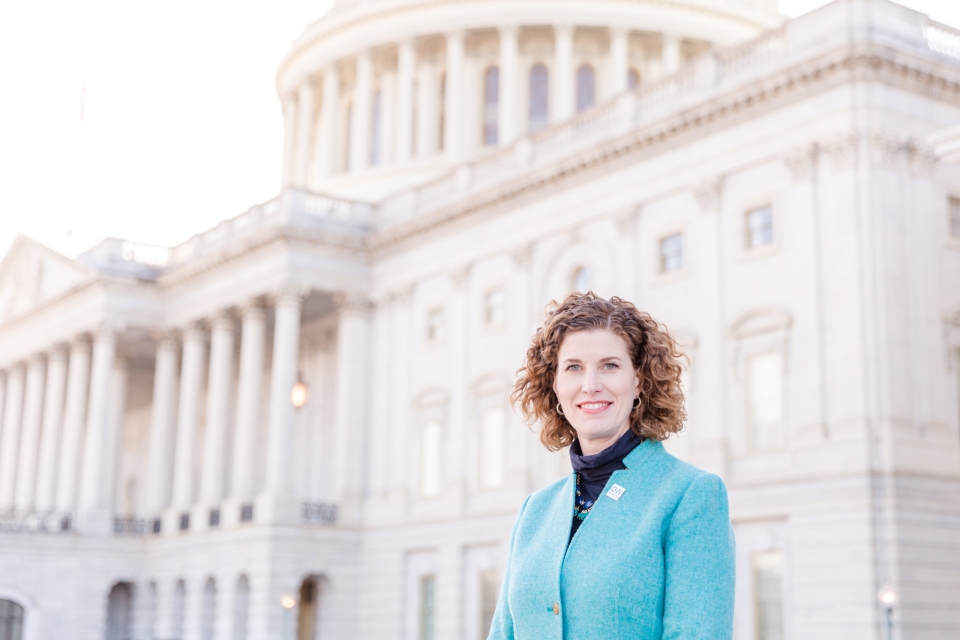“I like to eat” may be an unusual entry point for a discussion in gerontological health care, but for Melissa Batchelor-Murphy it makes perfect sense.
Patients with Alzheimer’s or dementia are often robbed of this simple pleasure; swallowing problems can lead to weight loss and choking in patients with middle and late stage Alzheimer’s. Sometimes patients may not even recognize the food on their plate.
“There is a huge need for education and training [for Alzheimer’s caregivers], especially around mealtimes,” said Dr. Batchelor-Murphy, an associate professor of nursing and geriatric nursing researcher.
She specializes in feeding patients with dementia and has advised for and appeared in the AARP’s new video series, “Home Alone Alliance,” which teaches family members basic caregiving skills. Dr. Batchelor-Murphy now brings her advocacy for gerontological patients to her new role as director of GW’s interprofessional Center for Aging, Health and Humanities.
In the classroom, Dr. Batchelor-Murphy counsels students that “health care is not all about acute care.
“I think it’s still a pervasive thought for students to not want to work in long-term care, but it’s an exciting and viable career path,” she said.
The center is known for its education programs and innovations in the clinical process, and Dr. Batchelor-Murphy plans to create a membership of other researchers and clinicians in aging to build the center’s research capacity. “I want to put GW on the map for excellence in aging education and policy,” she said.
Dr. Batchelor-Murphy brings the expertise and network needed to expand the center’s reach and influence.
In a previous role at Duke University, Dr. Batchelor-Murphy was featured in a series of videos for NOSH: Nursing Optimizing Supportive Handfeeding which demonstrated hand-feeding techniques for nurses and family caregivers of patients with dementia or Alzheimer’s.
As a health and aging policy fellow serving the United States Senate Special Committee on Aging in the office of Sen. Susan Collins (R-Maine), she worked on the Building Our Largest Dementia (BOLD) Infrastructure for Alzheimer’s Act. The legislation seeks to create public health infrastructure across the country to combat Alzheimer’s disease and preserve brain health.
The president signed the BOLD Act in January, and Dr. Batchelor-Murphy is now eager to watch how it will be implemented over the next five to 10 years, she said.


